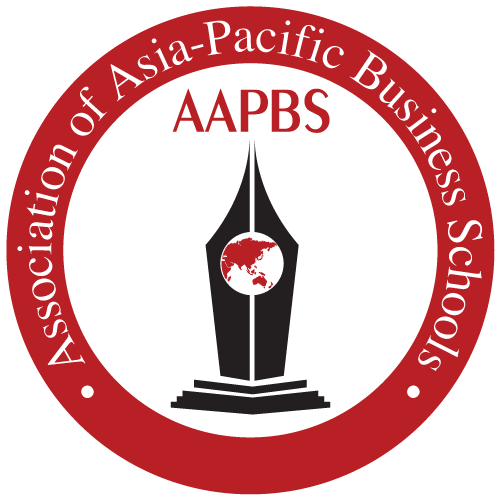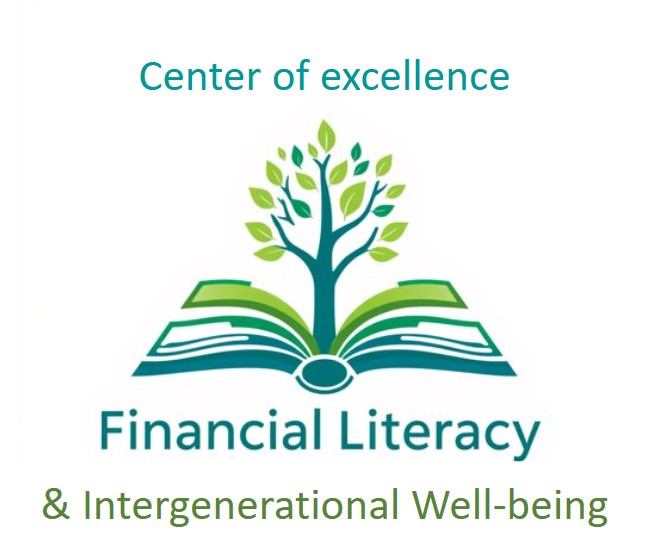The Effect of Market Orientation and Competitive Advantage on Retail Industry Marketing Performance with Trust as a Mediation Variable
 Abstract Views:
471 times
Abstract Views:
471 times
 PDF Downloads:
205 times
PDF Downloads:
205 times
Abstract
Purpose: This study aims to analyze the influence of market orientation and competitive advantage on marketing performance in the retail industry in the digital transformation era, with trust as a mediating variable. This study's novelty lies in exploring trust as an intervening variable, providing a deeper understanding of its role in improving marketing performance.
Method: This study uses a quantitative approach with Structural Equation Modeling analysis using SmartPLS 4 software. Primary data were collected from management and employees in the retail sector, with a conceptual framework linking market orientation, competitive advantage, trust, and marketing performance. The sample involved employees involved in retail operations, thus providing relevant insights into the industry dynamics.
Result: The results of the study indicate that market orientation and competitive advantage have a significant effect on marketing performance. In addition, both variables also have a significant effect on trust. Trust, in turn, has a significant positive effect on marketing performance. Trust also mediates the relationship between market orientation and marketing performance and between competitive advantage and marketing performance. This finding confirms the important role of trust as a mediating variable in strengthening the influence of market orientation and competitive advantage on marketing performance. Further research is recommended to explore other moderating or mediating variables, such as digital literacy or organizational culture. Expanding the study to different industries can also provide a broader perspective on market orientation, competitive advantage, and trust dynamics.
Downloads
References
Alfatiyah, R., Limakrisna, N. ., & Muharam, H. (2023). Determinants of Customer Trust in Universities: A Study of Private Universities in Banten, Indonesia. International Journal of Management and Digital Business, 2(2), 67–76. https://doi.org/10.54099/ijmdb.v2i2.753
Alhumud, A. A., Leonidou, L. C., Alarfaj, W., & Ioannidis, A. (2024). The impact of digital CSR disclosure on customer trust and Engagement: The moderating role of consumer deontology and law obedience. Journal of Business Research, 186. https://doi.org/https://doi.org/10.1016/j.jbusres.2024.115035
Arifin, S. (2021). Faktor-Faktor yang Mempengaruhi Kinerja Pemasaran Pada Sentra Industri Kue dan Roti di Desa Bugo. Jurnal Ilmiah Ekonomi Islam, 7(2), 848–859. https://doi.org/10.29040/jiei.v7i2.2550
Ayu, C. S., & Sulistyowati, R. (2021). Analisis Faktor-Faktor Yang Mempengaruhi Competitiveness Berbasis Industri Kreatif Subsektor Kuliner Pada Kampung Umkm Kreatif Di Surabaya. Niagawan, 10(2), 184. https://doi.org/10.24114/niaga.v10i2.25508
Bernadus, B., Maarif, M. S., Djohar, S., & Suroso, A. I. (2021). Demographic Analysis of the Retail Business Hypermarket in Indonesia. Jurnal Aplikasi Bisnis Dan Manajemen, 7(3), 580–591. https://doi.org/10.17358/jabm.7.3.580
Cardoso, A., Gabriel, M., Figueiredo, J., Oliveira, I., Rêgo, R., Silva, R., Oliveira, M., & Meirinhos, G. (2022). No TitlTrust and Loyalty in Building the Brand Relationship with the Customer: Empirical Analysis in a Retail Chain in Northern Brazile. Journal of Open Innovation: Technology, Market, and Complexity, 8(3). https://doi.org/https://doi.org/10.3390/joitmc8030109
Firdaus, & Jatmiko, R. (2021). Marketing Performance Based on Customer Relationship Management. Researchgate.Net, January. https://www.researchgate.net/profile/Firdaus-Firdaus-8/publication/349334793_MARKETING_PERFORMANCE_BASED_ON_CUSTOMER_RELATIONSHIP_MANAGEMENT/links/602b3506299bf1cc26cb688b/MARKETING-PERFORMANCE-BASED-ON-CUSTOMER-RELATIONSHIP-MANAGEMENT.pdf
Hair, J. F., Hult, G. T. M., Ringle, C. M., Sarstedt, M., Danks, N. P., & Ray, S. (2021). Evaluation of Formative Measurement Models. https://doi.org/10.1007/978-3-030-80519-7_5
Halim, E., Claudia, L., & Hebrard, M. (2023). the Impact of Customer Satisfaction, Customer Experience, E-Service Quality To Customer Trust in Purchasing Digital Product At the Marketplace. Jurnal Aplikasi Manajemen, 21(3), 567–577. https://doi.org/10.21776/ub.jam.2023.021.03.02
Hardhianti, V., & Sholahuddin, M. (2024). The Influence of E-WOM and Perceived Ease of Use on Purchase Interest in Muslim Fashion Products with Trust as an Intervening Variable (Study on Shopee Users in Surakarta City). Indonesian Interdisciplinary Journal of Sharia Economics (IIJSE), 7(2), 2046-2062. https://doi.org/10.31538/iijse.v7i2.4706
Hermawan, A. D., & Wardoyo, D. U. (2024). Pengaruh Sales Growth , Profitabilitas Dan Ukuran Perusahaan Terhadap Kinerja Perusahaan ( Studi Pada Sub Sektor Asuransi Yang Terdaftar Di Bursa Efek Indonesia Tahun 2018-2022 ). e-Proceeding of Management 11(1), 787–796.
Mahsyar, S., & Abidin, Z. (2020). The Effect of Customer Trust and Company Image on Customer Satisfaction and Customer Loyalty in Indonesia Classsification Bureau in Samarinda. International Journal of Economics, Business and Accounting Research (IJEBAR), 4(3), 27–40. https://doi.org/10.29040/ijebar.v4i03.1282
Mansouri, H., Sadeghi Boroujerdi, S., Polonsky, M., Husin, M. M., & Seydi, M. (2022). Investigating the mediating role of market orientation between internal marketing and the development of entrepreneurial orientation within private sports clubs. New England Journal of Entrepreneurship, 25(2), 103–120. https://doi.org/10.1108/NEJE-12-2020-0055
Nasir, M., Sularso, A., Irawan, B., & Paramu, H. (2020). Brand Trust for Creating Brand Loyalty in Automotive Products. International Journal of Management, 11(06), 1237–1250. https://doi.org/10.34218/IJM.11.6.2020.113
Nobmadella, O., & , N. (2021). Pengaruh Experiential Marketing Dan Kepuasan Terhadap Loyalitas Pelanggan Dengan Kepercayaan Sebagai Variabel Moderator (Studi Pada Pengguna Aplikasi KAI Access Di Surabaya). Jurnal Perkeretaapian Indonesia (Indonesian Railway Journal), 5(1), 26–35. https://doi.org/10.37367/jpi.v5i1.138
Noviyana, D., & Sitorus, R. (2023). Pengaruh Competitive Advantage dan Digital Business Strategy terhadap Financial Performance dengan Digital Marketing Sebagai Variabel Moderasi. Management Studies and Entrepreneurship Journal, 4(2), 1288–1304. http://journal.yrpipku.com/index.php/msej
Pamoengkas, I. (2020). Market Orientation and Value Creation in Improving Business Performance of the Fertilizer Industry in Indonesia. European Research Studies Journal, XXIII (Issue 1), 143–152. https://doi.org/10.35808/ersj/1567
Rosmayani. (2022). Implementasi Industri Kecil Berbasis Inovasi Kinerja Pemasaran. www.pustakaaksara.co.id
Santoso, H. (2023). Analisis Keunggulan Bersaing (Competitive Advantage) Dalam Perspektif Ekonomi Islam. I-ECONOMICS: A Research Journal on Islamic Economics, 8(2), 152–164. https://doi.org/10.19109/ieconomics.v8i2.12939
Setyawan, A. A., Mudhofar, F., Arum, Y., Susila, I., & Nasir, M. (2022). Strategic Partnership between SME Retailers and Modern Suppliers in Indonesia: A Relationship Marketing Approach. Organizations and Markets in Emerging Economies, 13(2), 317–335. https://doi.org/10.15388/omee.2022.13.82
Soriton, B. G., Tumbuan, W. J. F. A., & Tawas, H. N. (2022). Analisis Faktor-Faktor Yang Mempengaruhi Kinerja Pemasaran Umkm Kuliner Di Kecamatan Mandolang Kabupaten Minahasa. Jurnal EMBA, 10(4), 106–117.
Sudarman, D., & Lailla, N. (2023). The Influence of Marketing Strategy and Marketing Mix on Marketing Performance of Ready to Drink Beverages Through Brand Image. International Journal of Professional Business Review, 8(9), e03539. https://doi.org/10.26668/businessreview/2023.v8i9.3539
Sudirjo, F., Novita Sari, E., Yuliani, Hendra, & Apramilda, R. (2024). The Role of Customer Trust Toward Digital Sales and Website Visitor Satisfaction on Customer Loyalty of Zara Indonesia. Jurnal Informasi Dan Teknologi, 6, 291–296. https://doi.org/10.60083/jidt.v6i1.517
Susanto, S. C., & Soesanto, H. (2021). Improvement of Marketing Performance at Solo Culinary SMEs. International Journal of Economics, Business and Accounting Research (IJEBAR), 5(2), 318-326. https://doi.org/10.29040/ijebar.v5i2.2288
Syahreza, D. S., Rifai, D., Fernanda, M. R., Neliza, A. F., Anisa, R., & Tobing, M. S. R. L. (2023). Manajmen Strategi Keunggulan Bersaing Perusahaan. Jurnal Ilmiah Ekonomi Dan Manajemen, 1(4), 112–121. https://ejurnal.kampusakademik.co.id/index.php/jiem/article/download/315/310
Teneka, G. N. K., & Hasin, A. (2022). Pengaruh Orientasi Pasar dan Inovasi Produk Terhadap Keunggulan Bersaing dan Implikasinya Terhadap Kinerja Pada UKM Batik di Yogyakarta. Selekta Manajemen: Jurnal Mahasiswa, 4(1), 146–167. https://journal.uii.ac.id/selma/article/download/24903/14174
Timotheou, S., Miliou, O., Dimitriadis, Y., Sobrino, S. V., Giannoutsou, N., Cachia, R., Monés, A. M., & Ioannou, A. (2023). Impacts of digital technologies on education and factors influencing schools’ digital capacity and transformation: A literature review. In Education and Information Technologies, 28(6), 6695-6726. https://doi.org/10.1007/s10639-022-11431-8
Wijaya, O.Y.(2020). Strategi manajemen hubungan pelanggan dan orientasi pasar: upaya meningkatkan kinerja pemasaran industri furniture di jawa timur. Penerbit Lakeisha.
Wiyadi, W., Nuryulia Praswati, A., Trisnawati, R., & Chuzaimah, C. (2021). Strategi Peningkatan Kinerja UKM. Abdi Psikonomi, 2, 78–85. https://doi.org/10.23917/psikonomi.v2i2.338
Yaskun, M., Sudarmiatin, Agus Hermawan, & Wening Patmi Rahayu. (2023). The Effect of Market Orientation, Entrepreneurial Orientation, Innovation and Competitive Advantage on Business Performance of Indonesian MSMEs. International Journal of Professional Business Review, 8(4), E01563. https://doi.org/10.26668/businessreview/2023.v8i4.1563
Yudhi, S. (2021). Persepsi Beban Kerja, Lingkungan kerja, stress Kerja dan Pengaruhnya terhadap Kepuasan Kerja yang di moderasi oleh Coaching. Thesis. Universitas Islam sultan Agung.
Zuliasanti, K., Rusdarti, R., & Sakitri, W. (2020). Pengaruh Orientasi Pasar, Orientasi Kewirausahaan Dan Inovasi Produk Terhadap Kinerja Pemasaran Ukm. Business and Accounting Education Journal, 1(1), 73–83. https://doi.org/10.15294/baej.v1i1.38937

This work is licensed under a Creative Commons Attribution 4.0 International License.
Articles published in Journal of Entrepreneurship & Business are licensed under a Creative Commons Attribution 4.0 International (CC BY) license. You are free to copy, transform, or redistribute articles for any lawful purpose in any medium, provided you give appropriate credit to the original author(s) and the journal, link to the license, and indicate if changes were made.
Authors submitting to this journal agree to make their work freely available under the CC BY 4.0 license, ensuring broad dissemination and reuse. The full license details can be accessed at https://creativecommons.org/licenses/by/4.0/.
This ensures that they receive the maximum dissemination because there are no barriers to access. This license allows readers to disseminate and reuse the paper, but always requires them to grant the authors and the first publication full credit.
While JEB upholds ethical publishing standards, the responsibility for ensuring originality and compliance with copyright regulations lies with the authors. The journal is not liable for any legal claims related to the content of published articles.
For further inquiries, please contact the editorial team.

 DOI:
DOI:











